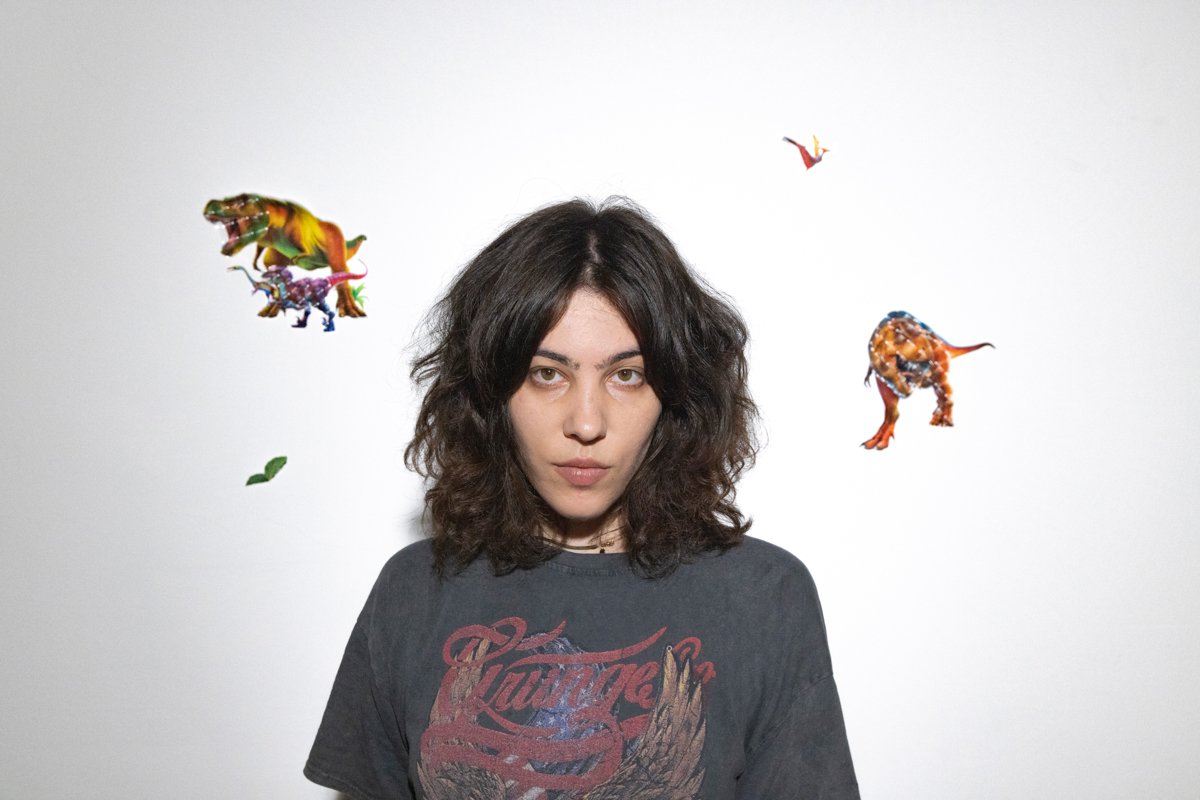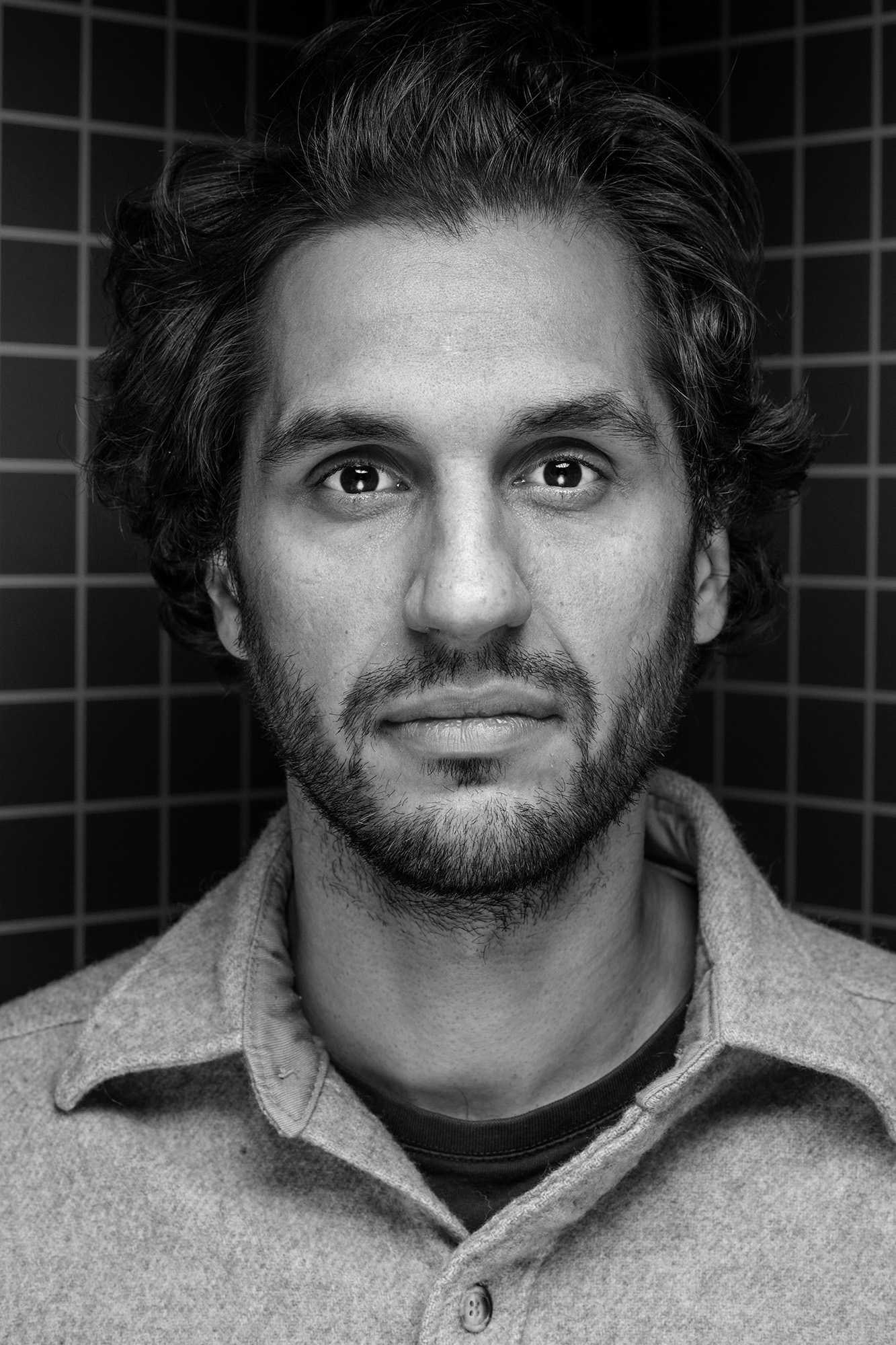




The artists nominated by
Meet the five artists nominated by Capa Center this years: Anna Gajewszky, Lujza Hevesi-Szabó, Olivér Lantos, Sára Kölcsey-Gyurkó and Hunor Tóth.
Gajewszky Anna // Vékony Dorottya
Anna Gajewszky explores the mysteries of life through a series of sensitively made photographs. Alongside the paradox of life and death, she examines different layers of existence, clearly reflecting an honest and curious female perspective. In her work, she playfully incorporates experiences from both individual and collective lives, creating a universe that feels like an invitation to shared adventures. These adventures often begin with self-exploration—as in Anna's case—and continue with a deeper investigation of our roots, origins, and family. Through her own presence, the artist grants insight into the themes that captivate her while simultaneously becoming an organic part of them: in reality, her work is about us, even as we see her in the images. Her photographs combine the classical elements of staged photography with experimental techniques, including collage and archival materials, making her artistic approach even more dynamic and diverse.
Dorottya Vékony
visual artist, university lecturer (Institute of Media and Design, Eger), former FUTURES Talent
Hevesi-Szabó Lujza // Virágvölgyi István
Lujza Hevesi-Szabó is an exciting personality on the emerging photographers' scene of Hungary, who explores a wide range of current and relevant issues in her dynamic, experimental and fresh photo series, also in search of her own authentic voice. Her often bold and unconventional perspectives and visual conceptualisation usually result in an ironic, curved mirror viewpoint, but one can always sense that she uses these tools not for their own sake, but with a good sense of proportion, to elevate the situations faced by her subjects. Already at such a young age, she has found her place on the team of one of the country's leading news portals, but she is also building her private life's work, and is concerned with themes independent of the press. As an agent of two worlds, embracing both autonomous and applied photographic attitudes, she reflects experimentally on the social problems that surround her, an approach that is part of a long tradition of photography and promises a bright future for the author.
István Virágvölgyi
artistic director, Capa Center, Budapest
Lantos Olivér // Csizek Gabriella
The starting point of Olivér Lantos' long-lasting photo series are always questions that affect him personally and to which he responds with his own photographic tools. His researcher's attitude provides the basis for this, and he expresses his opinions and questions in the photographs that emerge from the process of observational image-making. His imagery is varied: nature and the urban environment, personal and public spaces, staged and found images, portraits, still lifes can all be interpreted as interacting parts of a flow of images, but they also carry meaning in their own right. He uses an associative method to construct his series, in which he interprets and organises, thus creating an open system.
Gabriella Csizek
curator of the permanent Robert Capa exhibition, Capa Center, Budapest
Kölcsey-Gyurkó Sára // Kopin Katalin
In the works of Sára Kölcsey-Gyurkó, the personal dimension is the most important. It was during her studies at university that she was introduced to feminist readings and viewpoints, which had a great influence on her. Besides her personal attachment, this also contributes to her focus on the themes of femininity, the female body and motherhood. She is a curious and sensitive observer of people and herself. The projects she works on are mainly related to her own life events: defining home, living with cancer. She likes to use metaphorical images in combination with documentary photography, giving her series an exciting rhythm. An important element in her work is that she is not an outside observer in the situations she photographs, but an active participant, shaping events and influencing the course of events. Her use of symbolic motifs is a departure from the classical documentary tradition, placing her on the border between conceptual imagery and documentary photography.
Katalin Kopin
curator, Capa Center, Budapest
Tóth Hunor // Mucsi Emese
Hunor Tóth, Hungarian artist from Bikafalva, Romania, was born in 2000, more than ten years after the 1989 revolution. His work is set in the village of Tăureni, the main location of his childhood and where he currently lives, and commute to Budapest. After the Romanian regime change, cities were transformed faster than rural settlements, the latter being more slowly affected by the processes of globalization, which is why in many cases folk, domestic traditions are still preserved there. Hunor Tóth's commuting lifestyle and intergenerational situation between two or three settlements create a kind of dual perspective in his photographs, allowing him to present the peculiarities of rural life in Romania in a loving, yet ironic, and self-reflexive way. Beyond the authentic, unique problem-solving strategies that emerge in relative isolation, and the Eastern European bricolage aesthetic of traditional buildings, spaces and objects, Hunor Tóth's work creates a contemporary image of a village that moves away from romantic stereotypes and offers insights into the new challenges of disintegrating communities, slowly changing rural landscapes, transformation of family life and uncertain futures. He graduated from Sapientia EMTE Cluj-Napoca with a BA in Film, Photography and Media and from Moholy-Nagy University of Art and Design in Budapest with an MA in Photography, and his visual solutions, which subversively blend traditionalism with contemporary aesthetics, and the cinematic references of his photobook show the influence of these institutions on his oeuvre.
Emese Mucsi
curator, Capa Center, Budapest
Hunor Tóth (b. 2000) is a visual artist from Romania, currently residing and creating back and forth between Budapest, his home village of Tăureni (RO), and Odorheiu Secuiesc (RO). In 2024, he graduated from the Moholy-Nagy University of Art and Design Budapest with a Master's degree in Photography.
In his artistic practice, he consistently focuses on rural life and its various aspects. Primarily, he engages in the photographic exploration and documentation of rural existence, aiming not only to dispel stereotypical images of the countryside but also to draw attention to the significance of contemporary rural culture and the various ways the concept of the village can be interpreted. He is interested in how rural communities redefine themselves, adapt, and change in response to contemporary challenges such as urbanization, modernization, and globalization.
His work combines staged and documentary photography. This combination is a defining element of his artistic practice.


Oliver Lantos (b.1992) is a Hungarian photographer currently living and working in Budapest.
His works are mostly long term project, whose starting point are personal experience or a visceral reaction. He is interested in the systematization of his observations and researches, and the process of building these systems.
In his projects, he usually explores the effect of contemporary politics, the LGBTQ community, and the casual relationships between the problems of global social systems and their consequences, as well as their effects on human psyche and nature.
He graduated from the Moholy-Nagy University of Art and Design (MOME) in Budapest, in 2022, before that he studied at the KREA Contemporary Art Institute. Member of the Studio of Young Photographers since 2023. In 2024 he was awarded the József Pécsi Photography Grant.


Kölcsey Sára is a commercial and documentary photographer from Hungary, Pécs. She started her career at the age of 32, after she gave birth to her fourth child. She thrives on the opportunity to capture a story by framing complex scenes. She works on several long-term projects with subjects closely related to her own life events and experiences. As an artist and mother she captures the life of women, girls, and mothers. She strongly believes that they all deserve to be seen, and also to be heard.
The nature of the female body is also in her scope of interest: both what it stirs within and on the surface; its ability to create and grow life, its cyclical reminder that death is ever-present and, by the potency of 1st prize at the 42nd Hungarian Press Photo Competition: "Every day life" series category
.jpg)

Lujza Hevesi-Szabó (1997) studied photography at the Moholy-Nagy University of Art and Design, then worked as a photojournalist and is currently a photographer for Telex.hu. Her works mainly deal with social issues and family dynamics. Hungary, especially the Hungarian countryside and the current situation of the people living there, plays a prominent role in her subjects. She uses irony to make his work attention-grabbing and consumable. She mixes classic documentary photography with elements of subjective visual storytelling.


Anna Gajewszky (1997, Budapest) is a photographer based in Budapest. She has recently graduated from the photography masterclass of Moholy-Nagy University of Arts and Design.
Her work is mainly characterized by its intimate exploration of personal issues, with a focus on the intricate quality of human relationships. She examines connections people form with each other, their families, their past, their own bodies, animals, and within a larger aspect the land.
The use of self portraits underline that her work is rooted in her personal life, however the images transcend personal narrative to engage with broader themes such as womanhood, family connections, generations, and countryside, rural customs, rituals. Her images are mostly staged but they often stay on the ground of reality creating a duality of fiction and truth that is central to her projects. This approach allows her to explore and communicate complex aspects of human experience.
Her work was exhibited both in Budapest and internationally, she was published in the 2021 edition of Blurring the Lines, she received the National Higher Education Excellence scholarship, her book was shown at Polycopies 2023, she was finalist at the Paris Photo Carte Blanche Students, she was an exhibitor at the 2024 Breda Photo Festival and was presented at UNSEEN Amsterdam, by Tobe Gallery in 2024 fall.





















-Mustela.jpeg)











%2520ret.avif)